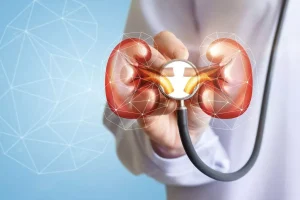
We offer a combination of proven therapies and services to meet your individual needs. We are also equipped to treat co-occurring disorders such as depression, anxiety disorders, PTSD and others. Addiction and dependence are related, but they are not the same thing. While dependence is the result of changes in your brain’s chemical balance, addiction involves your brain’s reward system.

What causes alcohol withdrawal seizures?
When not properly treated, AWS can progress to delirium tremens (Table 38–10). Because alcohol withdrawal seizures are a symptom of severe acute withdrawal syndrome, they should be treated as such. Patients should be admitted and close monitoring should be available, assessing the patient every 1 to 2 hours for up to 6 to 24 hours (70). As mentioned above, the revised CIWA-Ar scale can be applied to grade the severity of alcohol withdrawal (62). It has prognostic value, as patients with scores less than 10 generally do not need pharmacological treatment.
Can I Drink Alcohol If I Have Seizures or Epilepsy?
The symptoms can range from mild to severe, with the most severe being life-threatening. If you’ve developed alcohol use disorder in addition to alcohol dependence, detox may not be enough to address your alcohol problem. Detox alone may help you achieve sobriety, but that sobriety may be short-lived. Alcohol withdrawal can last for five to 10 days, but alcohol cravings and compulsions to use may continue for a long time. Even if you are no longer dependent on alcohol, you may have a compulsion to drink that’s hard to control. While you’re in inpatient treatment, you may also be treated with IV fluid, which can help keep you hydrated through the withdrawal process.

What is the treatment for alcohol withdrawal?
Neurons within the deep layers of the superior colliculus (16) and the periaqueductal gray (17) also may play a role in the initiation of audiogenic seizures. It is hypothesized that seizure activity propagates from the IC to deep layers of the superior colliculus (a major output of the IC) to trigger the wild running phase of the audiogenic seizure. The deep layers of the superior colliculus send projections directly to the spinal cord via the pontine reticular formation and the periaqueductal gray. The periaqueductal gray is thought to trigger clonic seizures, whereas the pontine reticular formation is implicated in the generation of the tonic phase of audiogenic seizures (18). Some evidence suggests that the IC plays a role in alcohol withdrawal seizures in humans, as it does in rodents.
Differential Diagnosis
- Seizures can occur during withdrawal from alcohol in people with a history of heavy drinking or long-term alcohol abuse.
- Severe and potentially life threatening symptoms of alcohol withdrawal include seizures and delirium tremens (DTs).
- However, they may cause people to fall and sustain potentially serious injuries, such as head injuries.
- Before a seizure, people may experience an aura or feel a change in sensation — such as smell, taste, sound, or vision — due to abnormal activity in the brain.
Abrupt cessation of alcohol intake after prolonged heavy drinking may trigger alcohol withdrawal seizures. Generalized tonic–clonic seizures are the most characteristic and severe type of seizure that occur in this setting. Generalized seizures also occur in rodent models of alcohol withdrawal. In these models, the withdrawal seizures are triggered by neuronal networks in the brainstem, including the inferior colliculus; similar are alcohol withdrawal seizures dangerous brainstem mechanisms may contribute to alcohol withdrawal seizures in humans. Alcohol dependence results from compensatory changes during prolonged alcohol exposure, including internalization of GABAA receptors, which allows adaptation to these effects. Optimizing approaches to the prevention of alcohol withdrawal seizures requires an understanding of the distinct neurobiologic mechanisms that underlie these seizures.
- In several studies, possible predictors for the development of a severe AWS have been investigated.
- Someone with a mild-to-moderate alcohol use disorder may have a problem with alcohol without developing significant dependence.
- These seizures are mediated largely in the brainstem, although the hippocampus may be invaded after seizure initiation (10).
- If you think you may be struggling with alcoholism or have experienced an alcohol-induced seizure, it may be time to seek professional help.
Mild side effects

Behavioral Treatment

Symptoms of alcohol withdrawal


